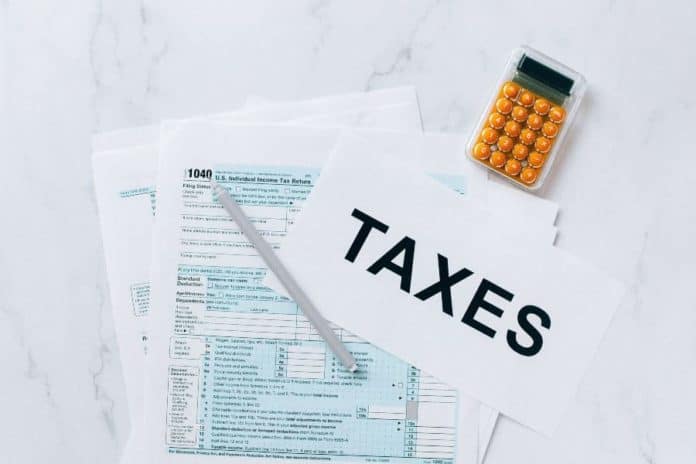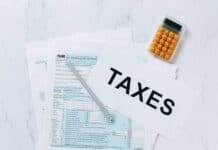Over the years, Hong Kong has maintained itself as one of the most preferred jurisdictions for doing business due to many reasons. They include the ease of company formation, free trade policy, direct connection to China’s market, modern infrastructure, high-qualified workforce and many more.
But for many foreign investors, the utmost important reason why Hong Kong becomes so appealing is its tax regime. Let’s find out about some key features of the tax system in Hong Kong.
Overview Of Hong Kong Tax Regime
Unlike many countries that tax worldwide income, Hong Kong adopts a pure territorial system of taxation. This means if you establish your company in Hong Kong, only the profits generated within the jurisdiction are subject to corporate tax. The same applies to the profits derived from a Hong Kong source.
In case your company earns profits outside of the jurisdiction, the profits can be exempted from income tax. In addition, even if they are earned in other foreign countries and then transferred back to Hong Kong, all are exempted. This is a huge advantage of why global entrepreneurs choose to invest and start their businesses in Hong Kong.
Corporate Tax
Hong Kong is now implying a two-tiered tax system for corporate tax. In particular, regarding corporations, the first 2 million of assessable profits generated in Hong Kong is taxed at 8.25%. The tax rate imposed on the remaining amount is 16.5%.
Meanwhile, for unincorporated businesses (partnerships for example), the tax rates are 7.5% and 15%, imposed on the same proportions of profits. To picture which tax rate is for your company, let’s take a look at this short infographic.
Exemption From Corporate Tax
As aforementioned, your company’s income earned from a foreign source can be exempted from corporate tax. However, you must submit a so-called “offshore claim” to the tax authority to obtain a Hong Kong tax exemption. Generally, the purpose of such a claim is to prove the foreign source of your company’s earned profits.
To give you more insights, here are some basic principles that the courts in Hong Kong bases on to determine the source of profits:
- Matter of fact: examining the transactions raising profits and the nature of profits
- Operation testing: identifying the operations raising profits and the location where such operations are carried out
- Decision base: looking into the place where daily business decisions are made
- Overseas presence: finding out whether a business in Hong Kong has an overseas presence
Personal Tax
Personal tax in Hong Kong is sometimes called salaries tax. Like corporate tax, the territorial principle also applies to personal one. To be more specific, only your personal income earned within or derived from the jurisdiction is subject to taxes.
There are two ways to calculate your taxable personal income tax in Hong Kong.
The first one is applying progressive tax rates, from 2% to 17%, to your net chargeable income (that is assessable income after deductions and allowances).
The second way is to apply a fixed tax rate of 15% to your net total income (that is assessable income after deductions but not allowances). Eventually, you will need to pay whichever lower from the two approaches.
Other Types Of Taxes
In addition to the low tax rates of corporate and personal tax, other kinds of taxes in Hong Kong are also very favorable for foreign investors. Here are some facts:
Hong Kong levies no tax on dividend income, regardless if it is derived from a local or foreign company.
There is no withholding tax imposed on dividends and interest paid to both residents and non-residents of Hong Kong. However, royalties and fees paid to non-residents sportsmen or entertainers will be subject to withholding taxes with different tax rates (depending on certain circumstances).
Hong Kong has no capital gains tax, no inheritance tax as well as no value added tax (which is equivalent to goods and services tax in some other countries).
To be one of the freest ports in the world, Hong Kong’s government has decided to put no tariff on imported and exported goods. However, there are still some exceptions, namely the import of liquors, tobacco, certain kinds of oil and alcohol.
Property owners who earn rental income in Hong Kong are subject to property tax. The tax rate is 15% imposed on the net assessable value of the given property. If your company’s rental income is included in the profits, the paid property tax may be deducted from the amount of assessed profits tax.
On the other hand, your company may apply for an exemption for paying property tax.
CFC rules
Controlled foreign company rules (CFC rules) are rules set out to prevent multinational corporations from shifting their profits to their subsidiaries located in low-tax or no-tax jurisdictions. Hong Kong does not imply any CFC rules and any further holding company regime, meaning the undistributed profits to a holding company paid from other subsidiaries are not taxed in Hong Kong.
Tax treaties
Noticeably, Hong Kong has signed a large number of tax treaties, called double taxation agreements, with more than 40 jurisdictions over the globe. The main aim of these is to avoid a source of profit being taxed twice when transferring between two jurisdictions.
Furthermore, through these tax treaties, Hong Kong can enhance investment and trading with other places by reducing certain tax rates or withholding tax rates.
These tax treaties can be a great help for your international business group. In particular, you can establish a company in Hong Kong and subsidiaries in other places where there is a tax treaty with Hong Kong to benefit from favorable withholding tax rates or even exemption when paying interest, dividends or royalties.
Conclusion
Hong Kong is a worthwhile jurisdiction for doing business globally. In addition to the ease of business establishment, the tax regime is one of the most important reasons.
Hong Kong has a pure territorial tax system. Only your corporate profits and personal income generated within or derived from the jurisdiction is subject to taxes. Foreign-sourced profits will not be taxed in Hong Kong.
There is no withholding tax imposed on dividends and interest. Furthermore, there is no dividend tax, no capital gains tax, no value added tax, and no tax on export and import (with very few exceptions).
You can also significantly benefit from the tax-treaty network Hong Kong has with many other places when doing business internationally.
Wise entrepreneurs never miss out on their opportunities. Starting your Hong Kong business venture now with Hong Kong company registration service to save time and reach your growth potential!












